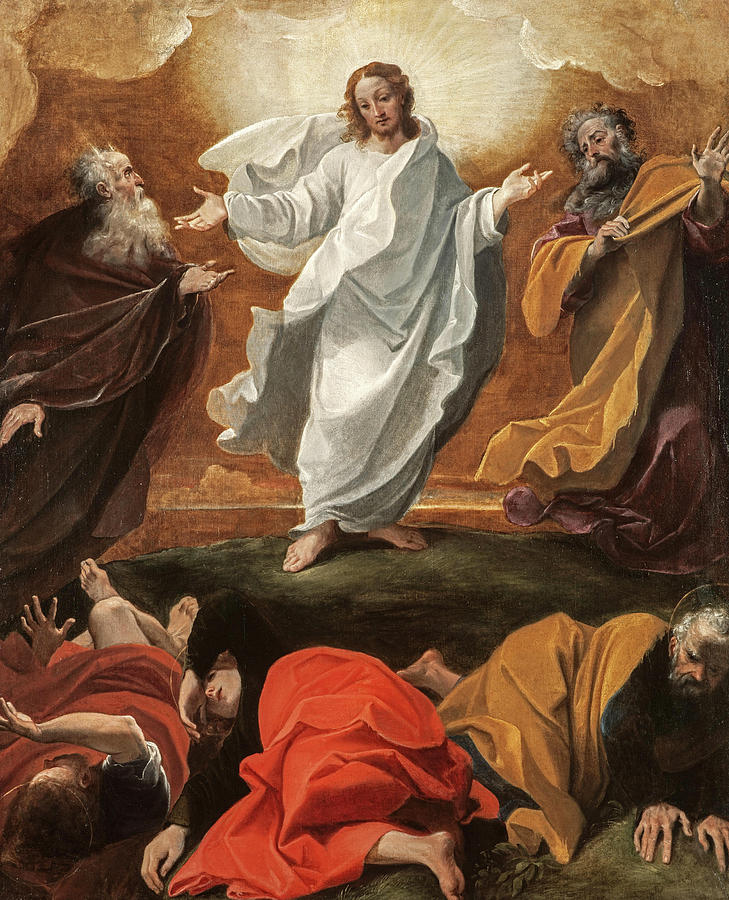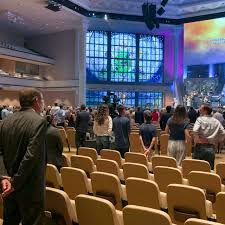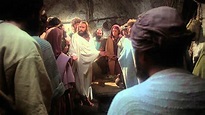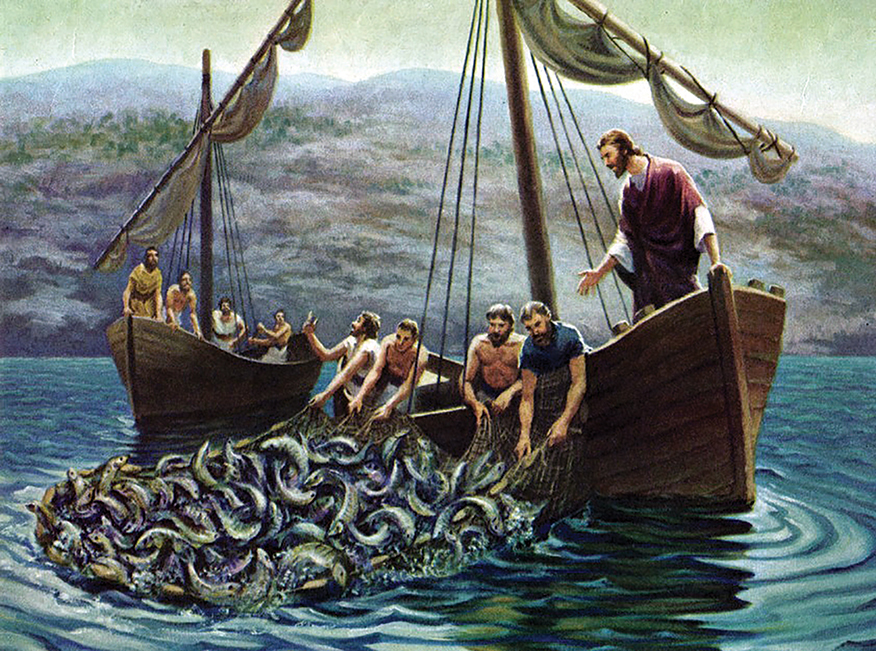Background Passages: Luke 9:28-36, 2 Peter I:16-19; Matthew 28:18-20
I am a J. R. R. Tolkien fan. Unabashed.
Since first introduced to The Hobbit and the Lord of the Rings trilogy over 40 years ago, I’ve read and re-read those books several times. The movies, the first of which was released in 2001, remain among my favorite movies.
Tolkien, a Christian from England, embedded biblical imagery throughout his books. In the Lord of the Rings, a hobbit named Frodo is chosen to destroy a certain ring that gives evil its power by casting it into the fires of Mordor. At one point stop along the way, Frodo believes he delivered the ring into more capable hands and can now go back home to his quiet shire.
It was not to be. Gandalf tells Frodo, “We have reached Rivendell, but the ring is not yet at rest.” Despite his desire to return to home and safety, Frodo realizes it is his responsibility to finish what he started.
As he struggles with that decision, Frodo’s best friend and companion on the journey, sums up the situation. He says, “I’ve never heard of a better land than this. It’s like being at home and on holiday at the same time, if you understand me. I don’t want to leave. All the same, I’m beginning to feel if we’ve got to go on, then we’d best get on with it.”
Sam and Frodo both realized as comfortable and glorious as it was, Rivendell was not their final destination.
Jesus must have felt something akin to that as he stood on the mountaintop during his transfiguration. As comfortable and glorious as it must have been to talk with Moses and Elijah, Jesus knew the ring was not at rest. There was still so much more to do. The most difficult part lay ahead. This glimpse of heaven was not the final destination.
It was certainly a message Peter and James and John needed to see and hear.
Jesus and his disciples retreated to Caesarea Philippi where Jesus could escape the crowds and teach them about the critical nature of his mission without interruption. The conversation about Jesus’ identity culminated with Peter’s declaration that Jesus was the anointed Messiah, the Son of God. Jesus used that confession to begin teaching about the suffering and death that lay ahead of him.
Peter especially didn’t like the implications of that which Jesus shared. Mark’s gospel tells us he pulled Jesus aside and “rebuked” him. Peter had the temerity to tell Jesus to quit talking like that. Despite his confession and all that Jesus shared with them, Peter and the others still failed to grasp exactly who Jesus was.
I have to think that conversation weighed heavily on Jesus’ mind as they journeyed back into Galilee. When he reached a certain point, Jesus left most of his disciples at the foot of a mountain. The Bible tells us what happened next.
“…he took Peter, John and James with him and went up onto a mountain to pray. As he was praying, the appearance of his face changed, and his clothes became as bright as a flash of lightning. Two men, Moses and Elijah, appeared in glorious splendor, talking with Jesus. They spoke about his departure, which he was about to bring to fulfillment at Jerusalem.
“Peter and his companions were very sleepy, but when they became fully awake, they saw his glory and two men standing with him. As the men were leaving Jesus, Peter said to him, ‘Master, it is good for us to be here. Let us put up three shelters, one for you, one for Moses and one for Elijah.’ (He did not know what he was saying.)
“While he was speaking, a cloud appeared and enveloped them, and they were afraid as they entered the cloud. A voice came from the cloud, saying, ‘this is my son, whom I have chosen: listen to him. When the voice had spoken, they found that Jesus was alone. The disciples kept this to themselves and told no one at that time what they had seen.” (Luke 9:28-36)
I’m not sure any of us truly know exactly what happened to Jesus during the transfiguration. By definition, he was changed. It’s not that bright spotlight from heaven lit him up like a rock star on stage. Jesus’ transformation came from within. One commentary said Jesus’ divine nature “broke through the limits of his humanity.” The light of glory shone from within causing the radiance appearance of his clothes. Don’t you love that interpretation?
I don’t know that Jesus needed the transfiguration to finish his task. The conversation surely meant something to him, however. From his words in Gethsemane, we know the human side of Jesus dreaded the suffering to come. I’ve read this passage many times, but this is the only time I realized what Moses and Elijah came to say. Did you see the topic of their conversation?
“They spoke to Jesus about his departure, which he was about to bring to fulfillment in Jerusalem.” (Luke 9:31)
With his eyes fixed on the cross to come, Moses and Elijah came to encourage and urge Jesus to finish what he started. To keep moving forward to the purpose for which he was sent. To stay on the mountain as life passed by below would condemn the world to ruin. I suspect even Jesus needed to feel the encouragement of others.
It seems the real reason for the transfiguration had its roots in the conversation at Caesarea Philippi. It’s one thing to proclaim Jesus as Lord. It’s altogether a different thing to understand it…to have it transform your thinking and change your life.
When Jesus asked the disciples, “But you? Who do you say I am?” They recognized him for who he was, but still wanted to fit him into a familiar box…to have him behave as they needed him to behave within the social and political turmoil of the day.
“You are the Christ,” Peter declared while visions of victory parades danced in his head. “You are the Christ,” declared James and John while they held out hope for ruling seats of power within his kingdom.
So what did the transfiguration mean to these disciples?
Perhaps the things Jesus tried to explain to them since Caesarea Philippi took an emotional toll on the disciples. By the time they reached the top of the mountain, they grew weary. While Jesus went off to pray, his disciples took a nap.
When the transfiguration occurred, they were awakened by the sight of Jesus shining like a bolt of lightning, blinding in his radiance. I suspect I would have been a lot like Peter in that moment…a man not fully understanding what he had just seen and heard, but knowing it was significant.
Riveted in awe and wonder, he reacted with unbridled enthusiasm. Compared to the wonder of what they experienced the world below was just too harsh. The future Jesus shared…too unsettling.
Leave it to Peter to try to memorialize the moment. “Let’s set up a tabernacle for each of you. We don’t want to leave this place. Let’s stay right here.”
As those words escaped his mouth, a mist enveloped them. They trembled in fear. God’s voice cut through the cloud…a command that was also a plea.
“This is my son whom I have chosen. Listen to him.”
Hear God telling these critically important disciples, “You’ve seen who he is. You know it in your heart. You’ve said as much. Change your frame of reference about the Messiah. He is my Son. He’s telling you how it must be. For once in your life, listen to him…really listen.”
There on the mountaintop, God reminded those disciples, the ring is not at rest. The end game must play out before the world can be set right.
At the transfiguration, this inner circle of disciples who struggled to fully grasp who Jesus was, caught a glimpse of his heavenly glory. Jesus underwent a dramatic change in appearance so the disciples could see just a fraction of his heavenly glory.
Up to that point, the disciples knew him only by his human touch, the sound of his voice and the power of his miracles. Now, they came to a greater realization of the deity of Christ. God offered desperately needed reassurance in the form of a blinding light.
Even then, they didn’t always get it right. After the resurrection, however, that moment on the mountain made perfect sense. That’s why Peter could write with such certainty as one transformed by the transfiguration experience.
“We did not follow cleverly invented stories we told you about the power and coming of our Lord Jesus Christ, but we were eyewitnesses of his majesty… We ourselves heard this voice that came from heaven when we were with him on the sacred mountain. (2 Peter 1:16-18)
So, the transfiguration reinforced in Jesus the purpose for which he had been sent into the world. It gave his disciples a chance to see beyond the human Jesus to the divine. To start listening, to pay attention to what Jesus was telling them about who he was and what he had to do.
What does the transfiguration mean to you and me?
It’s just as easy today to build a box in which to keep Jesus. He’s the genie I call on when I want something. He’s my excuse for taking a certain political stand. He is the author of pithy sayings that I quote to express my piety. We still too often make the mistake of failing to understand what his death on the cross and resurrection from the tomb means in a 21st century world.
We describe those times we have grown closest to Christ as our “mountaintop experiences.” We bask in the warmth of that feeling. Take a few selfies. Build a few tents and say, “I just want to stay here where it’s amazing and safe.”
That’s not our role any more than it was the disciples’ role. We follow a Christ who puts us in unbelieving world to be its transfiguring light, blazing bright enough from within so the world can see him in us.
The Christian church as a whole has stayed too long on the mountaintop. Stayed within the fellowship of believers. Celebrating the majesty of God and building our share of tents…all with a slightly distorted view of who he is. With this world struggling as it is, now is not the time to marvel. Jesus’ work through us is not finished. Maybe it’s time we “Listen to him.”
At the end of his earthly presence, Jesus commissioned those of us who now clearly understood who he is and what he did.
“All authority in heaven and on earth has been given to me. Therefore, go and make disciples of all nations, baptizing them in the name of the Father and of the Son and of the Holy Spirit, and teaching them to obey everything I have commanded you. And surely, I am with you, always, to the very end of the age.” (Matthew 28: 18-20)
I’m probably reading too much into Tolkien’s writings. I think he understood that God’s work in us is not yet finished. “The ring is not yet at rest.”
Read Tolkien’s words again. “I’ve never heard of a better land than this. It’s like being at home and on holiday at the same time, if you understand me. I don’t want to leave. All the same, I’m beginning to feel if we’ve got to go on, then we’d best get it on with it.”
Get on with it. Not with a sense of reluctance, but with the excitement born from a transfiguring and transforming experience with God’s son.
There is work to be done. We’d best get on with it.




